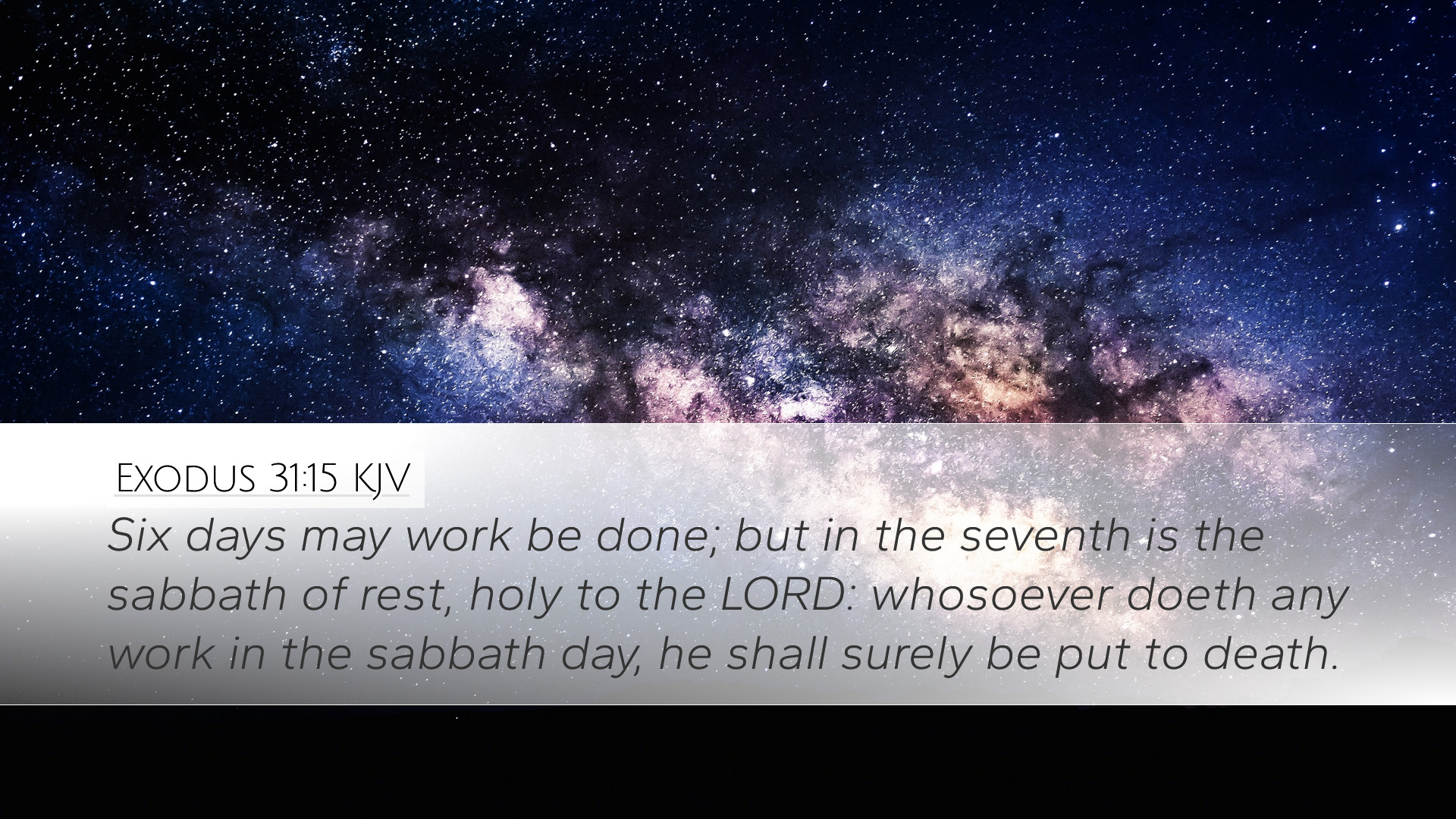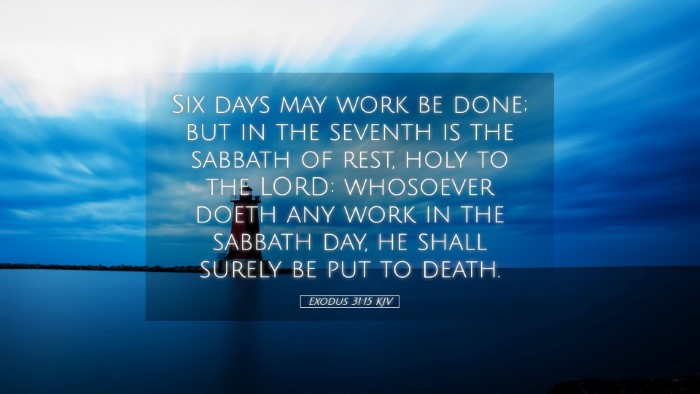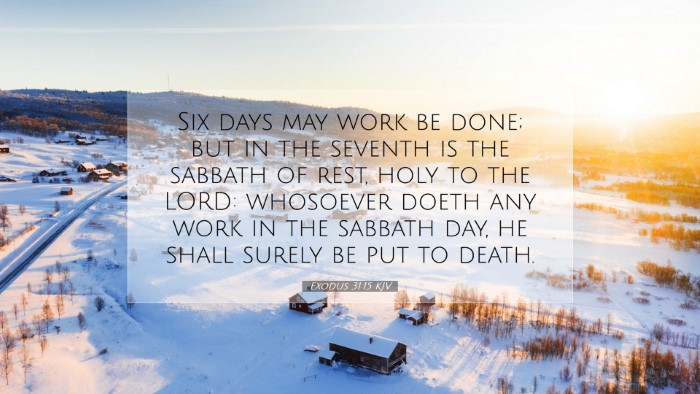Commentary on Exodus 31:15
Verse Text: "Six days shall work be done, but on the seventh is the sabbath of rest, holy to the LORD: whosoever doeth any work in the sabbath day, he shall surely be put to death." (Exodus 31:15)
Introduction
The command regarding the Sabbath is one of the most pivotal elements of the Mosaic Law and is intimately connected with the notion of rest and worship. This verse underscores the seriousness with which God approaches the observance of the Sabbath. Biblical scholars and theologians have provided extensive commentary on this critical passage, emphasizing its importance in the context of Hebrew culture, theology, and its lasting implications for Christian doctrine.
The Significance of the Sabbath
The Sabbath, derived from the Hebrew word Shabbat, signifies a cessation from labor and has roots deeply embedded in the creation narrative. According to Matthew Henry, this day is not merely a suggestion but a divine ordinance established by God following His creative work. He rested on the seventh day, not out of necessity, but to set a precedent for humanity.
Albert Barnes elaborates that the Sabbath is a day holy to the Lord, designated for worship and reflection. It serves as a reminder of God’s creative power and His covenant relationship with Israel, as articulated throughout Scripture. By consecrating the Sabbath, the Israelites reminded themselves of their identity as a chosen people.
The Seriousness of Violating the Sabbath
This verse explicitly states the severe consequences for those who break the Sabbath by working on that day. Adam Clarke points out that this penalty of death reflects the high value God placed on obedience to His commandments. The provision of these consequences also underscores the aspect of holiness associated with God's commandments.
- Theological Implications: The severity of this penalty suggests that the violation of the Sabbath is not merely a societal infraction but a direct affront to God's holiness and authority.
- Covenantal Context: The punishment emphasizes the covenantal relationship between God and Israel. Breaking the covenant through disregard for the Sabbath was seen as a breach of God’s law, invoking a serious response.
Applications for Contemporary Readers
The commandment of Sabbath rest transcends the cultural and historical confines of ancient Israel. While the specific application of the death penalty is not in practice within the New Covenant context, the principle of setting aside a day for rest and spiritual renewal remains relevant. Henry encourages readers to view the Sabbath not merely as a legalistic obligation but as an opportunity to deepen their relationship with God.
Moreover, scholars such as Barnes advocate for a balanced view of work and rest. The modern pace of life often neglects the importance of reflecting on God’s creation and rejuvenating the spirit, which serves as a necessary reminder for believers today.
The Link to the New Covenant
While the Mosaic Law's specifics, including the Sabbath, are fulfilled in Christ, Christians are still called to observe patterns of rest and worship. Clarke notes that the essence of the Sabbath should inspire believers to seek rest in Christ, who offers spiritual restoration.
- Jesus and the Sabbath: In the New Testament, Jesus redefines the understanding of the Sabbath, emphasizing mercy and human need over rigid legalism. His teachings encourage believers to focus on the heart behind the law rather than mere adherence to rules.
- Spiritual Rest: Believers are called to enter into God’s rest through faith, echoing the invitation offered in Matthew 11:28-30, where Christ invites the weary to find true rest in Him.
Conclusion
Exodus 31:15 encapsulates the essence of the Sabbath—a divine ordinance emphasizing rest, worship, and holistic well-being. As pastors, students, theologians, and Bible scholars examine this passage, they uncover the profound relational dynamics between God and His people. By honoring the Sabbath, believers acknowledge God’s sovereignty and cultivate a rhythm of life that honors both work and rest. The invitation for modern Christians is to embody the spirit of the Sabbath through intentional practices of rest that draw them closer to God.


